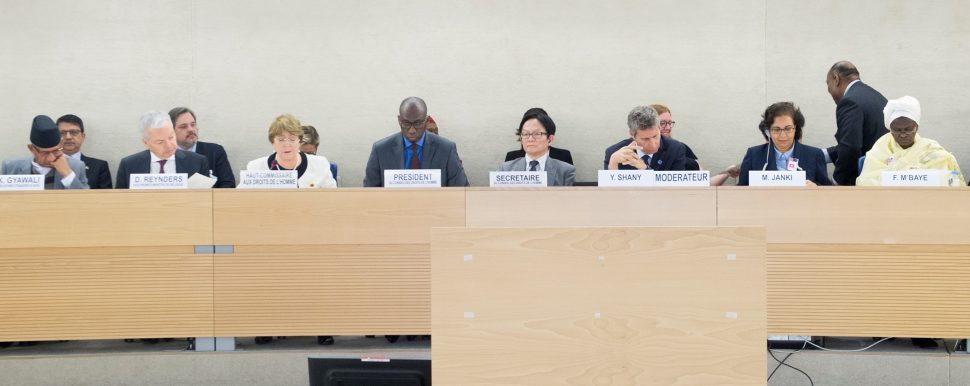In December, 2018, for the first time, Guyana shifted its stance from opposing a moratorium on the death penalty, and instead, abstained from the vote at the United Nations General Assembly in New York.
It was among 32 states to do so, with 121, including Dominica, having voted in favour of the death penalty moratorium, and 35 states, including the USA, India, Pakistan, Iraq and Iran, voting against it.
A press release from the Justice Institute Guyana (JIG), stated that Guyana’s move was acknowledged during the United Nations Biennial High Level Panel on the death penalty last week. The panel met at the 40th session of the United Nations Human Rights Council in Geneva, Switzerland.
Panel member and Guyana’s representative, Melinda Janki, condemned the death penalty, calling it barbaric. The release noted that the panel unanimously condemned the death penalty, with members making cases individually for why it should be abolished across states.
“She (Janki) reminded States that the Dutch and British colonial powers in Guyana used the death penalty to terrorise enslaved Africans and that even today inequality is hardwired into Caribbean societies. Ms Janki pointed out that the death penalty is also applied in a discriminatory way. In the English-speaking Caribbean, death sentences tend not to be imposed on the rich and powerful but only on the poor and the powerless, the illiterate, the under-educated and the mentally challenged. Unlike the rich, who could secure top quality legal representation, the marginalised were often left with mediocre legal representation and a serious risk of wrongful conviction. She added that “Even the United States of America, which is such a rich and powerful country, is now infamous for the number of innocent people who have been sentenced to death in its courts”, JIG reported.
Belgian Foreign Affairs Minister, Didier Reynders, the release said, noted that the death penalty continues to be applied in instances of apostasy, blasphemy, adultery and consensual relations between persons of the same sex.
It was reported that Janki, while agreeing, stated that, “The LGBTI community is free to love whomever they choose. The right to life cannot be separated from the right to love. The world needs more love and less killing.”
However, it was noted that Singapore, which spoke on behalf of the 34 other countries that defended the death penalty, argued that the institution of the penalty is a matter of sovereignty. The release stated that Singapore, responding to Janki’s comment, ‘Pointed out that states had an obligation to protect all of their citizens, not just those people that governments and judges believed should be protected’.
JIG opined that those states that voted against the resolution are “clearly out of step with the global trend towards abolition”.






